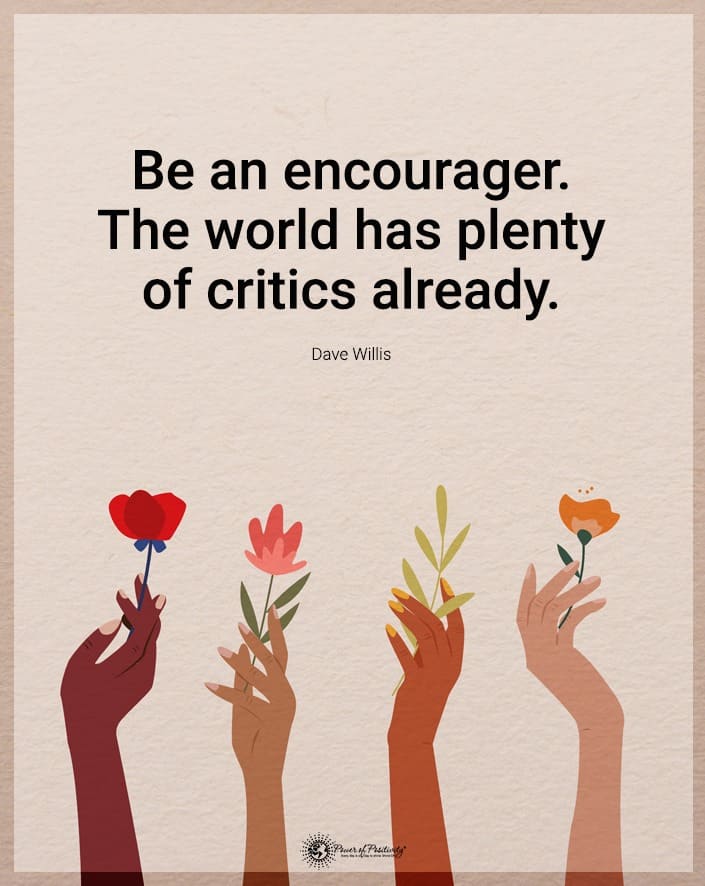Emotional validation is a response that involves communicating acceptance of feelings, beliefs, and thoughts. This action can be applied to the self or others. Essentially, it means having no immediate judgments, putting aside personal opinions, and focusing on genuinely hearing out the emotion in question.
Not everyone realizes just how crucial emotional validation is. If more people were aware of its essential nature, they might put more effort into making it a part of their lives! Here are six science-proven facts about emotional validation never to ignore.
1. Emotional Validation Forms Better Relationships Through Communication
Undoubtedly, relationship experts often cite communication as one of the essential pillars of a relationship of any kind. As such, your familial, platonic, and romantic relationships can benefit from improved communication.
Emotional validation is a vital part of healthy communication. Conversations where both parties validate the feelings of the other have a better and happier outcome, after all. This satisfaction strengthens bonds, allowing people to become more connected. Here are some ways that emotional validation helps communication and fosters better relationships:
· Communicating Acceptance and Value
Acceptance is an integral part of different close relationships. Indeed, acceptance is the bare minimum, and emotionally intelligent people know this is key for peaceful co-existence. For even better relationships, you have to communicate that you value someone’s feelings, too. Studies show that emotional validation effectively communicates acceptance and care for others.
· Deactivating Defenses
Defensiveness is not beneficial to communication at all. When you invalidate how someone feels, they automatically defend themselves. They think they have to justify their emotions since you seem to dismiss them. On the other hand, emotional validation puts those defenses at ease. Thus, it allows for healthy, open communication with better emotional intelligence.
· Communicating Safety
To have healthy, open communication, people must feel relatively safe talking about the topic at hand. Emotional validation allows someone to be vulnerable safely and securely for them. They don’t need to fear judgment and can therefore be more honest.
· Making Others Feel Heard
Communication involves both speaking and listening. When someone talks about how they feel, helping them feel heard benefits overall communication. Validating someone’s emotions shows them that you hear them, believe them, and are willing to listen even more.
· Aiding Emotional Regulation
To communicate effectively, one must be able to regulate their emotions appropriately. Emotional validation facilitates this by reducing the intensity of those feelings, according to research.
2. Emotional Validation Predicts Marriage Outcomes
Some people roll their eyes at the necessity of validating emotions in a marriage. We’ve already discussed how important the habit is for strengthening relationships by communication. But that’s not all! Experts can predict if a marriage will last based on whether or not emotional validation is present in a couple’s interaction. And of course, what expert would discover this better than famous psychologist John Gottman himself?
Gottman conducted the study in this manner. Gottman set up a bed-and-breakfast at a lab at the University of Washington. They took 130 newlywed couples to the “retreat” in the lab to spend one day there. Researchers then watched each pair to see how they interacted and worked during daily tasks. These tasks included cleaning, preparing meals, talking, and spending time together. Finally, the research team touched base with each couple for the next six years.
Findings About the Emotional Validation Survey Found This:
- Throughout the day, partners would make small requests for connection. These connections were simple statements like comments on random events or seemingly insignificant details.
- The goal for the partners making these bids for connection was to connect with their partners through shared appreciation or interest. Even a short moment of connection was considered valuable and sought-after.
- The other partner in this scenario could respond in multiple different ways. They could react positively, negatively, or neutrally with disinterest. Gottman considered positive responses to be “turning toward.” Conversely, they called neutral and negative responses “turning away.”
- Couples who “turned away” two-thirds of the time would end up divorced in the next six years.
- Couples who “turned toward” 87% of the time remained together after six years.
What does this tell us? Even small requests for emotional needs to be met are essential. The tiny amount of emotional validation that comes from these little moments adds up over time. It also reveals a lot about respect, connection, and communication in a relationship. Using this knowledge, Gottman can predict, with 94% accuracy, if couples will remain together happily. All that, just based on emotional validation levels!
3. A Lack of Childhood Emotional Validation Follows Into Adulthood
Children and adolescents can be profoundly harmed by emotional invalidation. Kids need to receive emotional validation from their parents or guardian figures at a young age. It’s essential to their development of healthy communication and coping skills. In fact, young people at this age who don’t receive emotional validation may be at risk of developing:
· Borderline Personality Disorder
BPD involves unstable relationships, emotions, and self-image. Someone with the disorder’s sense of self may change dramatically and suddenly with their feelings. Emotional invalidation may increase and cause the dysregulation in emotions that are so common with the condition, say studies.
· Eating Disorders
Anorexia nervosa, an eating disorder where individuals starve themselves and count calories obsessively, can be caused by emotional invalidation. When this invalidation reaches the point of emotional abuse, research indicates children may grow up to develop eating disorders like this.
· Self-Harm Can Stem from a Lack of Emotional Validation
Self-harm or self-injury involves intentionally causing harm to oneself with various physical or emotional means. It can be performed to express emotion, cope with strong feelings, or due to an inability to feel emotions accurately. Adolescents who are invalidated emotionally by their parents have a higher risk of self-harm, say studies.
The worst part is that these issues don’t go away quickly! They can continue to be a significant problem for those kids as they grow up. As adults, they’ll have to deal with the effects of the invalidation from their childhood in long-term healing processes.
4. Emotional Validation Doesn’t Mean Accepting Poor Treatment
Emotions can be the source of many different behaviors. Some behaviors are less acceptable than others. The ability to provide emotional validation to someone should not get in the way of your wellbeing. If someone is treating you negatively, abusively, aggressively, inappropriately, or otherwise poorly, you should remove yourself from that situation. In the meantime, you can:
- Say you would like to listen to them and communicate about the situation. However, you cannot do that until the other party is calmer.
- Say you’ll come back to talk to them again later when you’ve both had time to think and cool off.
- Please encourage them to seek professional aid with someone who can properly, truly help them with their issues.
It’s important to remember that you’re not in charge of removing the other person’s feelings. When tired and in need of a break, enforce your boundaries. If things escalate and you face poor treatment, it’s time to get out of there! Your happiness, respect, and safety matter, too.
5. A Lack Of Emotional Validation Has Long-Term Consequences
Many people don’t realize how crucial emotional validation is to someone’s life and psychological state. It’s easy to brush something that seems so simple under the rug! But the long-term consequences of repeated invalidation of emotion speak for themselves. These consequences include the following:
· Identity Issues
When emotions are regularly invalidated, someone’s sense of self can erode. The invalidated person may feel that they aren’t accepted and can develop poor self-esteem.
· Emotional Management Issues
Emotional invalidation involves the act of regularly telling someone that how they feel is incorrect. As a result, it causes confusion, distrust in emotions, and many self-doubts. This can cause those who face this to have trouble recognizing and regulating their emotions. They may even start to dismiss their own experiences as unreal or gaslight themselves into believing they’re being too sensitive.
· Mental Health Conditions
Repeated emotional invalidation increases the risk of developing mental health disorders. Anxiety, depression, and even personality disorders can occur due to treatment. Feelings of hopelessness, stress, and self-doubt grow into chronic problems. Those who already struggle with mental illness will face exacerbated symptoms and may invalidate those symptoms due to invalidation.
6. You Can Accidentally Invalidate Emotions With Good Intentions
Emotional validation often has to be consciously given. Unfortunately, emotional invalidation is way too easy to give accidentally! A lot of people believe that good intentions override any invalidating statements. But the truth is that you can emotionally invalidate someone without meaning to, even when your preferences are entirely pure. This may happen by:
· Trying To Help
Attempts to fix a situation, offer solutions, or give advice can invalidate someone seeking emotional support. Instead of allowing the person to vent and express themselves, these attempts “silence” them.
· Conflating Emotional Validation With Agreement
Some people think that you can’t validate someone who believes something negative about themselves. If someone says, “I feel so unloved,” you might want to say they aren’t quickly. But this invalidates how they feel and doesn’t allow them to talk about their emotions and experiences!
· Wanting The Best For Someone
Many people accidentally invalidate emotions because they want the best for someone. Thus, they’ll dismiss someone’s fear or anxiety in favor of pushing them forward. This support is excellent, but there are times when a listening ear is the best form of support!
· Assuming You Know What They Mean
If you assume you understand someone’s emotions, you could get it wrong and miss the point. When in doubt, it’s always best to ask for clarification on someone’s feelings.
· Talking About Yourself
Some people try to validate others by expressing how they relate. They’ll share instances where they went through similar things in an attempt to show their empathy and cheer the other person up. But this can make it look like they’re making everything about them!
Final Thoughts On Facts About Emotional Validation To Never Ignore
Emotional validation is an incredible way to form healthy communication, connections, and relationships. It avoids the many adverse effects of invalidation and focuses on positive acceptance and understanding. So learning to avoid invalidation and perpetuate validation is vital for everyone!
The post 6 Science Proven Facts About Emotional Validation Never to Ignore appeared first on Power of Positivity: Positive Thinking & Attitude.








